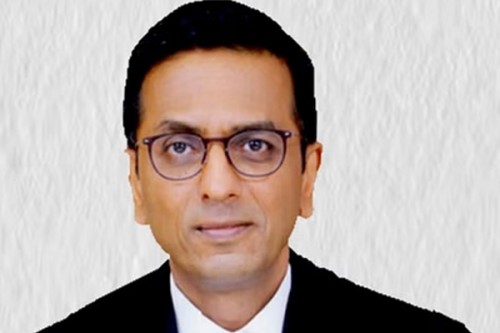CJI to attend foundation stone laying ceremony for Bombay HC new complex

Mumbai, Sep 23 (IANS) Chief Justice of India D.Y. Chandrachud will attend the groundbreaking and foundation stone laying ceremony for the Bombay High Court’s new complex at Bandra East in northwest Mumbai on Monday.Chief Minister Eknath Shinde, Deputy Chief Ministers Devendra Fadnavis and Ajit Pawar and other Justices of the Supreme Court, who have adorned the Bombay High Court, including Justice B.R. Gavai, Justice A.S. Oka, Justice Dipankar Datta, Justice Ujjal Bhuyan and Justice Prasanna B. Varale, along with the Bombay High Court Chief Justice Devendra Kumar Upadhyaya will also participate at the function.
The new High Court Complex would be housed in Bandra, East. The land on which the new High Court Complex would come up is well located, with strategic proximity to both the island city and the suburbs, the Western Express Highway, and the bustling international commercial hub of Bandra-Kurla Complex. Possession of the 30.16-acre land area is scheduled to be handed over to the High Court in a phased manner. The first tranche of 4.39 acres of land has been handed over.
The Bombay High Court, founded on August 16, 1862, is currently located at Flora Fountain, in a majestic building that the court has occupied since November 1878. Seven years in the making when it was built, the High Court building was originally designed for use by 10 judges in six courtrooms, and seven judges occupied it. "Presiding over the State of Maharashtra, a leader among states in industrial and economic growth over the decades, with Mumbai, an international city buzzing with trade and commercial activity as its capital, the Bombay High Court is in need of better infrastructure that is commensurate with the times," said the release issued by the state publicity department."Monday’s groundbreaking ceremony will mark the first step in the journey towards Mumbai having a world-class court infrastructure that would be designed keeping in mind future needs of the High Court for effective justice delivery," reads the release.The new court building is expected to be an architectural signature in the landscape of Mumbai. Apart from court infrastructure such as well-designed and spacious courtrooms and chambers for judges and registry personnel, and indeed attendant features such as arbitration and mediation centre, auditorium, library and the like, the plan is to also ensure the availability of other features and amenities for various stakeholders, including staff, lawyers and litigants.
The plan is to enable stakeholders to have access to support services such as banking and telecom, medical facilities, digitisation centre, creche, cafeteria, waiting areas, multi-storey car park, museum and lawyers’ chambers. All the infrastructure will be designed keeping in mind accessibility features aimed at the convenience of differently-abled stakeholders.The Bombay High Court exercises jurisdiction over the State of Maharashtra (through the Principal Seat in Mumbai and benches at Nagpur and Aurangabad) and the State of Goa. It also exercises jurisdiction over the Union Territories of Dadra and Nagar Haveli, and Daman and Diu. The High Court has a sanctioned strength of 94 judges with the current strength of 66 sitting judges.

|

|

